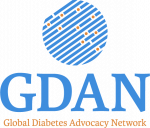
From New Zealand, more evidence is emerging to suggest that the ongoing and unaddressed health inequity for indigenous peoples is costing hundreds of millions of NZ dollars. (1 NZ$ = .64 US$).
A new study has revealed that inequity directly cost the NZ health system NZ $39.9 million per year with substantial additional costs from ‘ambulatory sensitive hospitalisations and outpatient care.
When the indirect cost of lost years of life and low wages were added, mainly borne by the indigenous Māori Whanau populations, the cost skyrocketed to more than NZ $860 million.
Māori were also found to be significantly under-utilising primary health care, that includes GP visits, which created an annual saving to the health system of $49.4 million per year. It is the failure to engage with primary care that can lead to the more expensive interventions required when complications present.
Similar studies have found other indigenous groups, Australian Aborigines, Pacific Islanders and North American Indians, failing to access health services.
According the report co-author, Professor Rhema Vaithianathan: “The most concerning finding is that the Primary Care system actually saves money by under-serving Maori. Not surprisingly, the underserving in primary care has a flow on effect in the hospital sector where Māori have excessive rates of avoidable admissions.”
At the recent International Diabetes Federation Congress (IDF) in Lisbon, PDGN held a symposium on this, reported later in this issue.
Advocacy Action: Are there indigenous peoples in your country facing similar challenges? Are there successful strategies and policies that could be shared?
